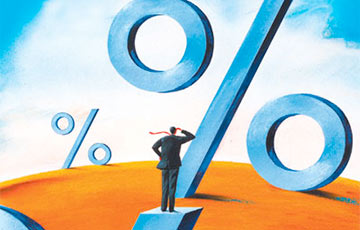'We Pay More And More Taxes, Less Understanding For What'
16- 8.08.2022, 12:22
- 4,758

The economic model in Belarus is seriously ill at the fundamental level.
The number of taxpayers, registered in Minsk, has increased by more than 500 thousand people only for the last six months! This is an impressive increase, writes the Kosht Urada telegram channel. So what has happened?
If you examine the statistics in retrospect, you can see that the number of taxpayers in the country is growing steadily. It is happening most intensively in the capital city and Minsk region (which is quite predictable - these regions are the key growth drivers of the Belarusian economy). For example, there were 377,000 active taxpayers in Minsk at the beginning of 2019; in two years their number increased to 408,000. Then the situation changed radically: from January 2021 to January 2022, the figure jumped by a third, to 640 thousand, and then, in just six months, the figure went into space, to 1 million 155 thousand.
A similar situation, though not on such a scale, can be observed in the regions. Brest region (January 2022 - 671 thousand, and July 2022 - 858 thousand) and Homel region (January 2022 - 585 thousand, July 2022 - 826 thousand) are following the capital and Minsk region in the list of leaders in the growth of taxpayers.
Let us examine at whose expense this growth is taking place. Taxpayers are divided into three categories: organizations, individual entrepreneurs and natural persons. Organizations and individual entrepreneurs usually pay their taxes in one place, while individuals can do it in several places. We can see that over the last six months, there has been virtually no increase in the number of organizations and sole traders. The lion's share of new taxation objects are individuals.
Most likely, it is due to the latest tax innovations: we are talking about people starting to pay taxes on cars (previously, a state duty rather than tax was charged on cars), as well as taxes on the first flat.
There is nothing to be surprised about. We have already got used to it that the worse the state feels from the economic point of view, the more actively it gets into pockets of citizens. In such a process of "de-kulakization", it is very important who is being "dekulakized", in what way, and how obvious is the benefit to society as a whole from the new tax. If the government cannot answer these questions clearly, problems will arise. Such as after the introduction of the "parasite tax".
The wording with which the tax on the first flat was introduced sounded like "levelling the taxation conditions". Ostensibly, previously only homeowners and those who had 2 or more flats paid into the treasury, but now everyone will bring the money.
The question arises: will the new taxes really do any good? After all, in order to collect them, there will be a significant cost: someone has to find the owners of the flats, to make sure that they do not evade payment. New software will have to be developed, new forms, reporting forms, etc. will have to be made. Can you imagine the amount of new workload on the tax inspectorates in the capital, which have had by a third more "clients" in six months?
How much extra manpower will this require? What financial and time costs will have to be incurred? We cannot tell you that. But we can guess how much they will get(excluding expenses). It was said that the tax will be 30-50 roubles from the flat a year. In Minsk, real estate is more expensive than in the regions, so we will count on the upper bar. By simple calculations, we get that in 2022, the proceeds from new taxpayers for their flats in Minsk will amount to about RUB 25 million. The figure is huge for an average citizen, but on the scale of the capital's budget it is not impressive. Yet it is the richest region.
So it is unlikely that collecting taxes for the first flat is a great plan. Rather, it is an imitation of a stormy activity. People are counting new taxes, the tax office is looking for and identifying non-payers, and the government is trying to figure out whether they made good money in the end. Everyone seems to be doing something. And the main thing - in the fever of solving this and dozens of new senseless problems there is less and less time to think that the economic model in the country is seriously ill at the fundamental level.









